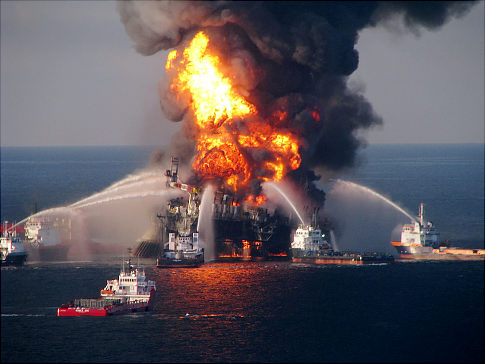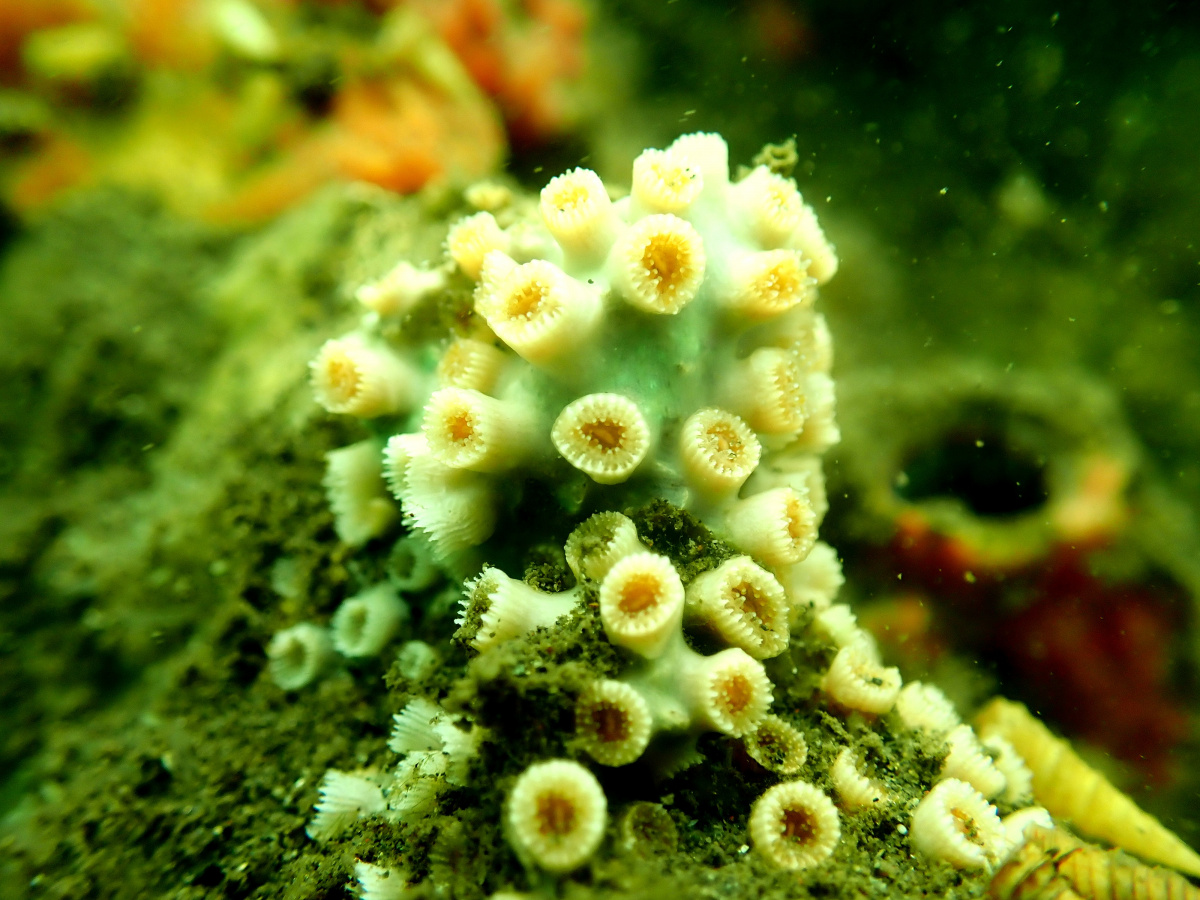Risk against profits!
Because of the distance, prevailing currents and winds, the oil slick drifting to southern United States shores will probably not directly affect the Caribbean. However, events in the last few weeks in the Gulf of Mexico should be seen as a serious warning for any country commercializing its submarine oil resources, especially those who bet a lot on tourism such as in the Caribbean. How will governments and stakeholders now balance profits against risks?

Photo: US Coast Guards
As Dr. William Jackson (Deputy Director-General of the IUCN) said in an interview given to the BBC: “the world changed on summer’s day in 1858 in a field in Pennsylvania (USA) where the world’s first specially constructed deep well struck oil.” During the following decades, the extraction of oil had led world economy to a non-return situation, a limited and polluting oil resource-based economy. As a consequence, even it was well known that oil stocks be almost empty, the extension of offshore drilling has ever had the last word on political decisions because of economic growing needs. Petroleum companies have consciously bypassed technologic knowledge in drilling oil in very deep water and operational procedures and prevention to minimize the risk of environmental damage seem to have been dramatically forgotten as we are sadly observing oil still gushing into the Gulf of Mexico.
The United States Administration didn’t wait to protect its US$65bilion tourism sector and introduced a state of emergency. In comparison with the Caribbean, how many nations that are encouraging the extension of oilrigs in their territories could respond to such a disaster? What is really done to ensure the security of offshore installations? How will Caribbean governments balance profitable oil extraction contracts against the environmental damage risk in the future? In the Caribbean Sea, two main very deep-water strata of oil-bearing rock and a number of tectonic faults full of oil and gas are said to exist. And while petroleum companies are planning to expand their business within deep water oil stocks in the Caribbean, BP is spending millions of dollars a day to contain the oil, dispersing chemicals and ruining the ecosystem in the Gulf of Mexico. In the same time, despite the Moratorium on drilling new offshore oil wells announced by President Obama on May 14th, despite the National Environmental Policy Act and the Endangered Species Act applying in the USA, which forbid drilling projects from moving forward unless they produce detailed environmental studies about minimizing potential risks, at least seven new permits for various types of drilling and five environmental waivers have been granted, according to records.
Unfortunately, however hard it tries to clean its huge mistake, BP won’t be able to cancel the wide ecosystem damage caused by the oil slick. As far as technology can progress, the days of easy access to oil are over and this is good news for the Environment. Modern energy issues are already well known but the economy remains faithful with its benefactors. Questions risen during the last few weeks come back to the same old thing, economic issues are in the balance and governments must be making a very simple calculation: what is more profitable between a limited resource as oil and a profitable growing sector as tourism? In fact the oil tycoons have already given the answer some years ago when they began building gigantic touristic complexes in Dubai (United Arab Emirates) in order to think ahead oil resources.
Ulysse Lichtlé
Communication Intern,
Regional Office for Mesoamerica and the Caribbean Initiative.
Email: ulysse.lichtle@iucn.org



